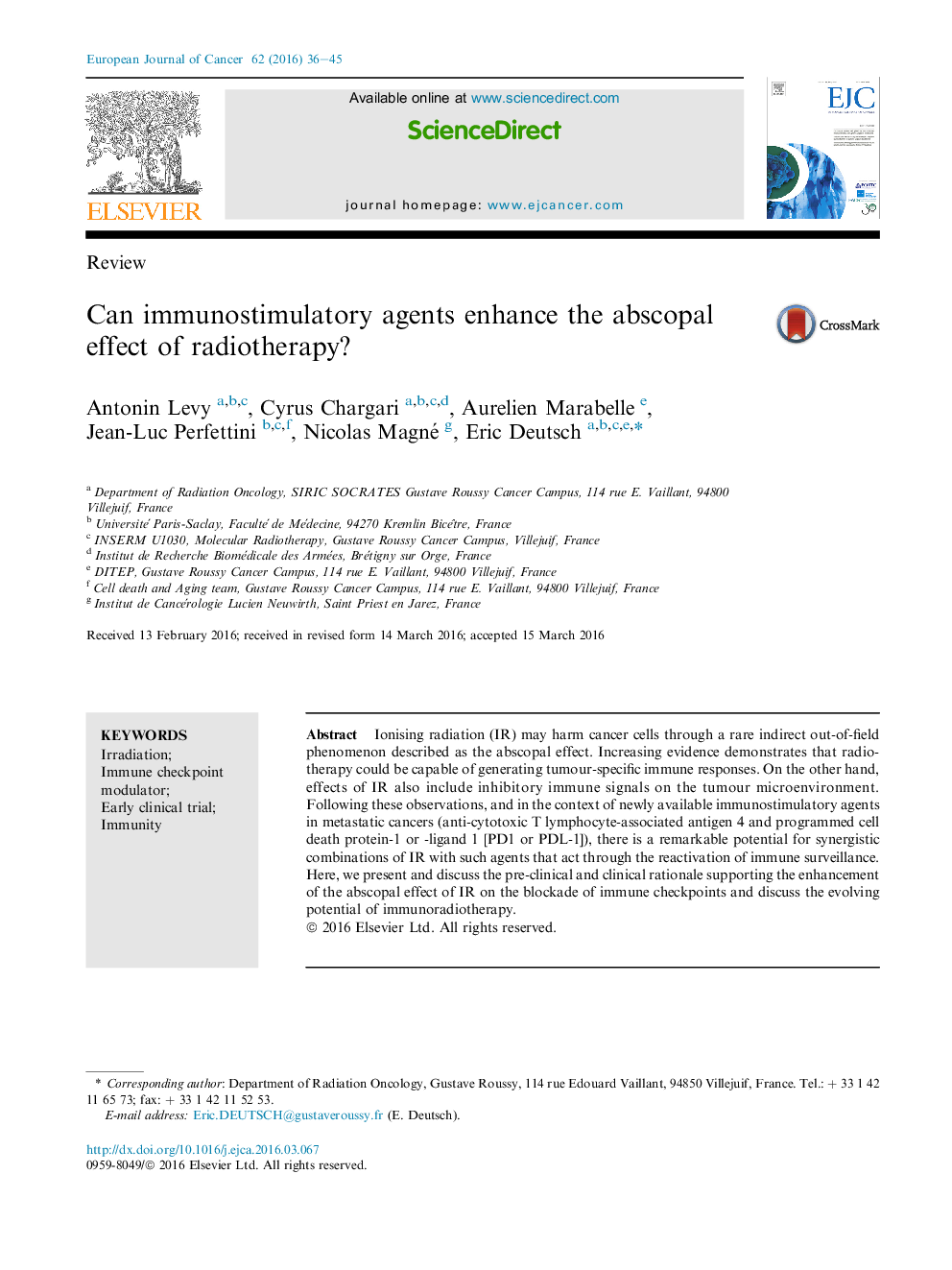| Article ID | Journal | Published Year | Pages | File Type |
|---|---|---|---|---|
| 8441139 | European Journal of Cancer | 2016 | 10 Pages |
Abstract
Ionising radiation (IR) may harm cancer cells through a rare indirect out-of-field phenomenon described as the abscopal effect. Increasing evidence demonstrates that radiotherapy could be capable of generating tumour-specific immune responses. On the other hand, effects of IR also include inhibitory immune signals on the tumour microenvironment. Following these observations, and in the context of newly available immunostimulatory agents in metastatic cancers (anti-cytotoxic T lymphocyte-associated antigen 4 and programmed cell death protein-1 or -ligand 1 [PD1 or PDL-1]), there is a remarkable potential for synergistic combinations of IR with such agents that act through the reactivation of immune surveillance. Here, we present and discuss the pre-clinical and clinical rationale supporting the enhancement of the abscopal effect of IR on the blockade of immune checkpoints and discuss the evolving potential of immunoradiotherapy.
Keywords
Related Topics
Life Sciences
Biochemistry, Genetics and Molecular Biology
Cancer Research
Authors
Antonin Levy, Cyrus Chargari, Aurelien Marabelle, Jean-Luc Perfettini, Nicolas Magné, Eric Deutsch,
